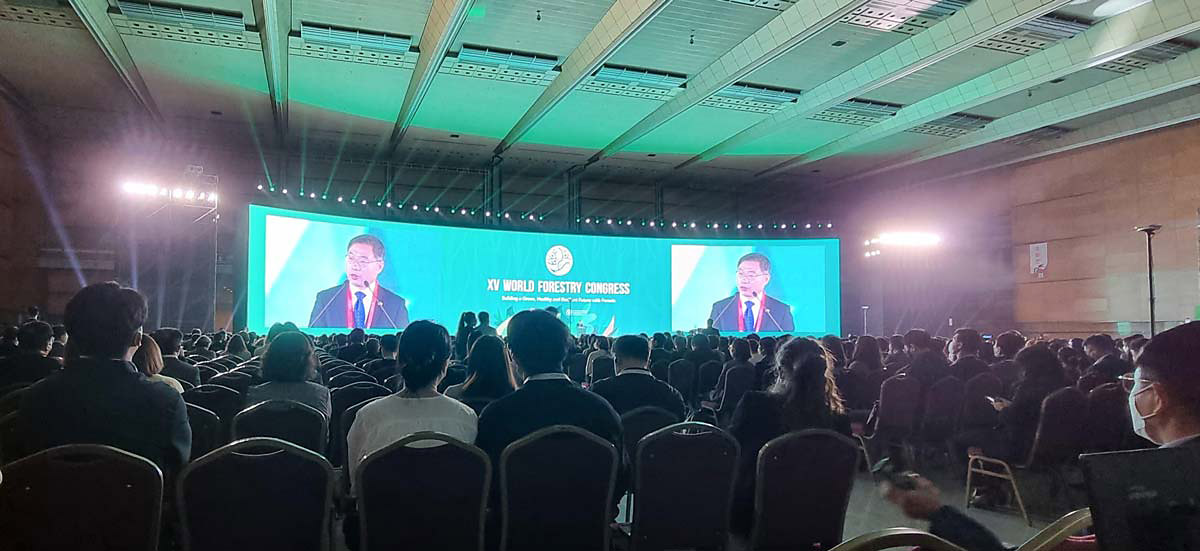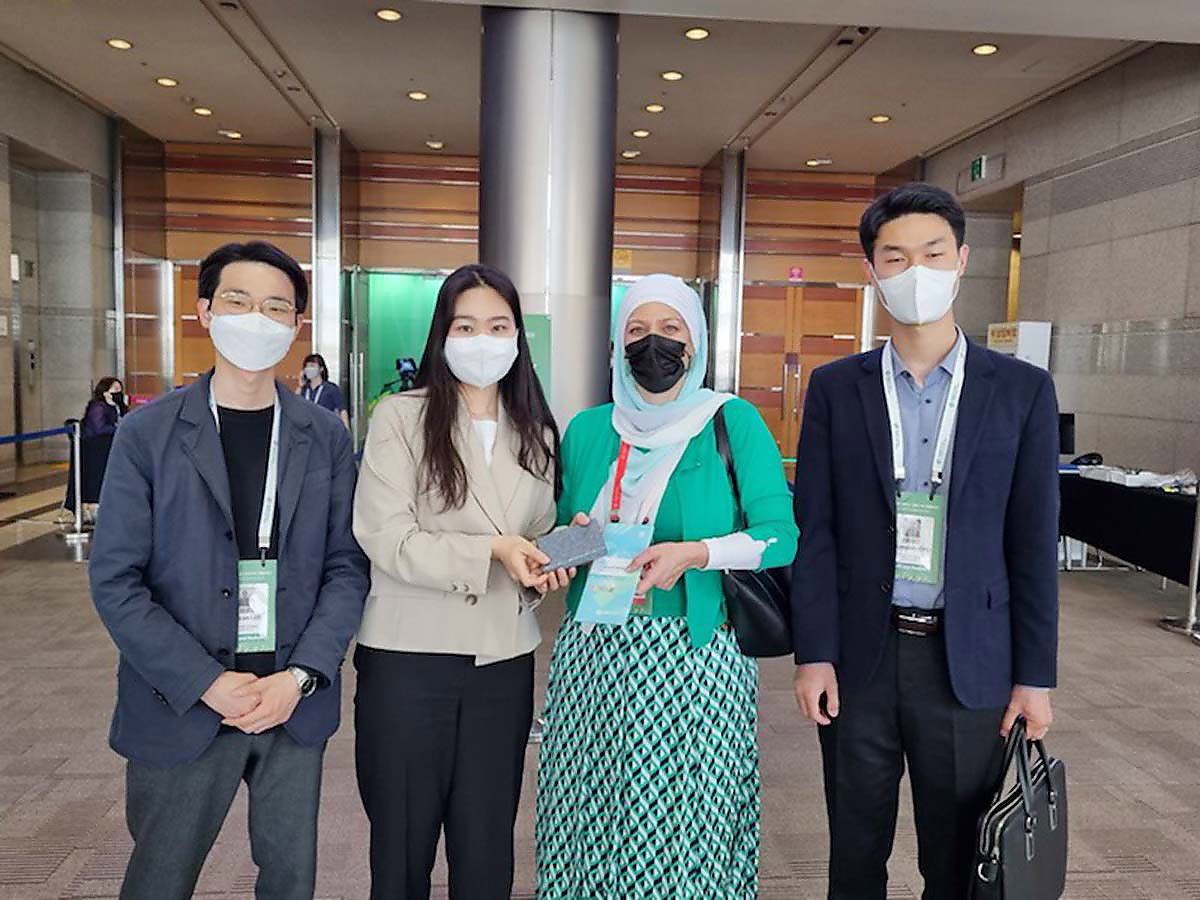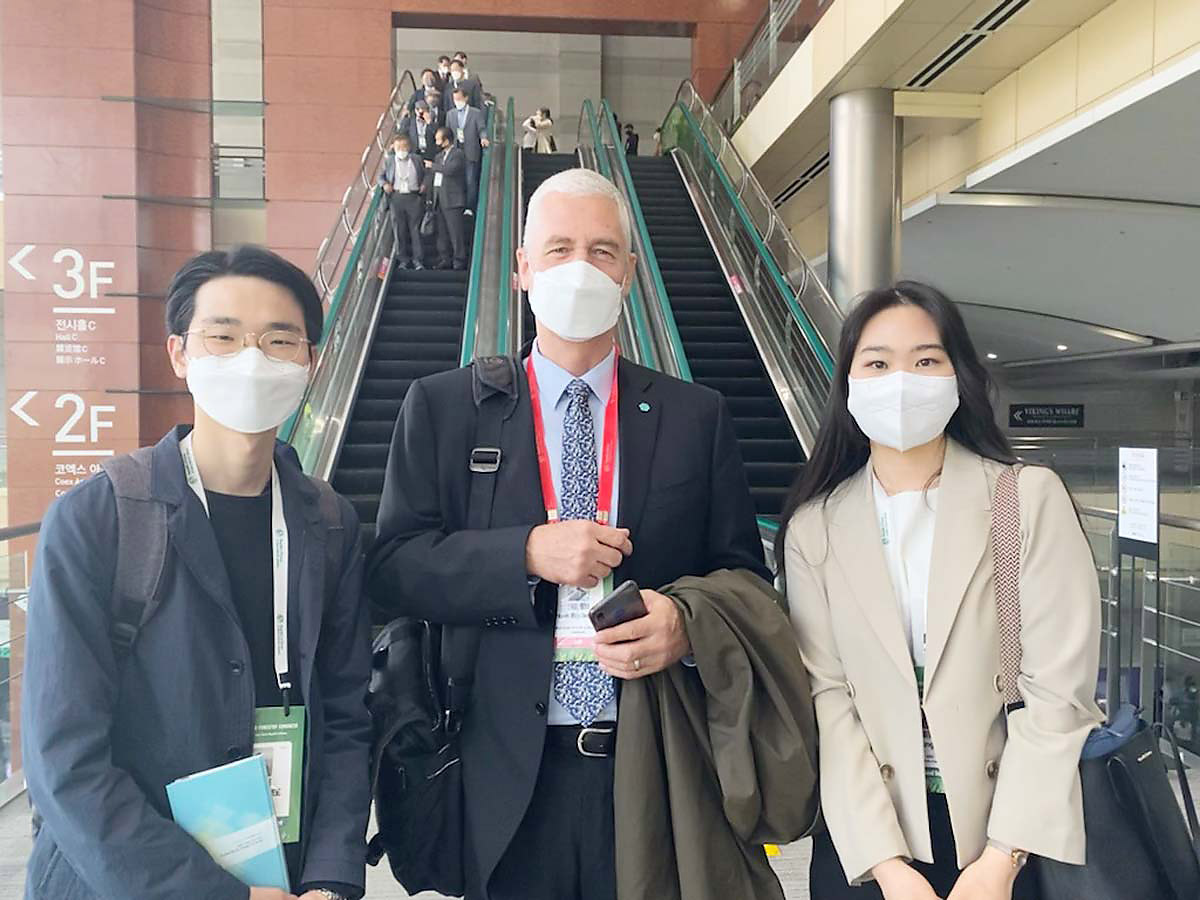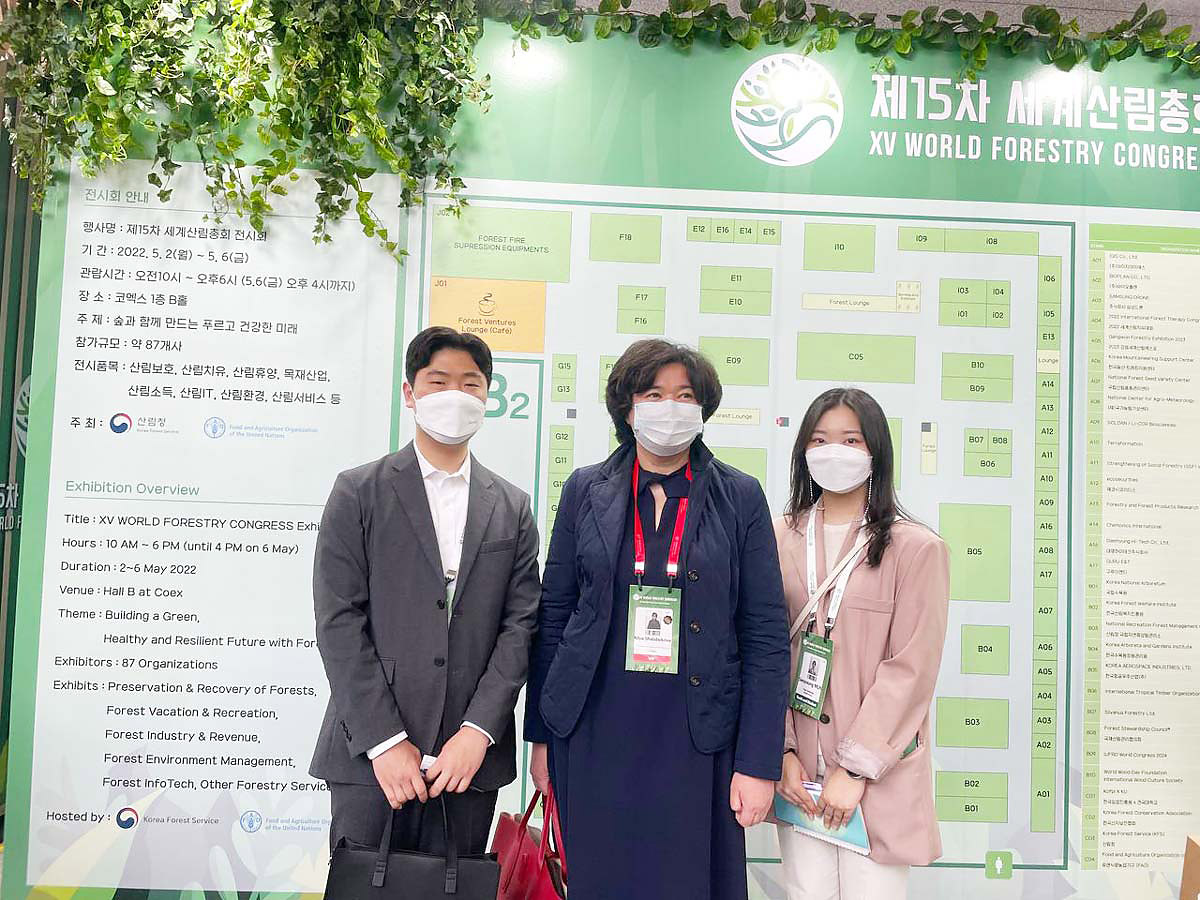From May 2 to May 6, 2022, the XV World Forestry Congress was held in Seoul, Republic of Korea (hereinafter referred to as “Korea”).
Since the first congress was held in Italy in 1926, it has become the most influential international forest event. It is held every six years, and the UN Food and Agriculture Organization [FAO] selects the host country. This year, it was held for the first time in Asia-Pacific region in forty-four years. Committing to make plans for strengthening the role of the forests and for protecting them, the Congress decided to develop new projects to accelerate future efforts, and ended successfully.

Under the theme, “Building a Green, Healthy and Resilient Future with Forests,” more than 10,000 people from 164 countries took part in the Congress; they were from governments, academies, public and private sectors, non-governmental organizations, civic groups, scientific or professional organizations, forestry societies, and the general public who are interested in forest. The Congress consisted of various programs such as the main discussion, a high level dialogue and forum with ministers, a session for sub-themes, special events, exhibitions of thesis and posters, and additional events. Various discussions were held under the sub-themes as follows. 1. Turning the tide: reversing deforestation and forest degradation; 2. Nature-based solutions for climate-change adaptation and mitigation and biodiversity conservation; 3. The green pathway to growth and sustainability; 4. Forests and human health: revisiting the connections; 5. Managing and communicating forest information and knowledge; 6. Forests without boundaries: enhancing management and cooperation.
At the closing ceremony on the 6th, the “Seoul Forest Declaration” was adopted, which summarized the opinions of each field. The Declaration emphasizes the responsibilities of various organizations and people, and suggests six major tasks that the forestry sectors should put into practice. The tasks are as follows: Integrated management of forests, expansion of investment for restoration of desolate forests, establishment of green financial system, use of sustainable timber, preparation for the next pandemic by minimizing the negative impact on forests, and forest management based on objective data through the application of science and technology. In addition, the “Ministerial Call on Sustainable Wood” and the “Youth Call for Action” were also adopted.
ASEZ participated in the Congress to learn various perspectives and activities such as policies, research, science and technology, and civil society activities for forest protection, and thought about how to apply them to each campus. In addition, ASEZ gained much support and advice through networking with domestic and foreign experts who attended the event.
Princess of Jordan, Environment Minister of the Republic of Congo, Vice Minister of Environment of Ecuador, Vice Minister of Ecology of the Republic of Kazakhstan, Director General of the Global Green Growth Institute [GGGI], Deputy Director General of the UN Food and Agriculture Organization, [FAO], Former Secretary-General of the UN Convention to Combat Desertification [UNCCD], Forestry Director of the Ministry of Environment in Panama, ambassadors of each country in Korea, officials from international organizations and government agencies, university professors, and representatives of NGOs attended the event, and ASEZ met them to search for educational and action plans to protect forests which are directly related to all living beings.




The experts agreed with ASEZ educating students and building partnerships. They also emphasized the role of university students for the future of forests and mankind, and asked ASEZ to continue with their activities.
Environment Minister of the Republic of Congo said, “We need to know what a forest is,” and hoped that ASEZ university students would educate local students in his country and work with them. The Secretary-General of the UN Food and Agriculture Organization also invited ASEZ to the FAO global forum held every year, saying, “You will change the future and save the world.” In particular, the Vice Minister of Environment of Ecuador held a meeting with ASEZ before leaving the country to discuss what university students should do to bring change in local communities.
Korea Forest Service, which hosted the Forestry Congress, said that one of the major achievements of this event is that they had strengthened the cooperation with the international organizations and many other countries around the world for forestry.
In this age, cooperation among countries, fields, and people is important than ever. People in all fields, including the government, business, academies, civil society are in an inseparable relationship with the forest. When we come together and act together, we can protect our forest and future. ASEZ will build a green, healthy, and resilient future with forests.